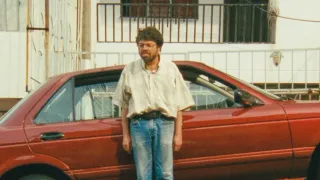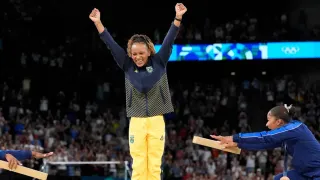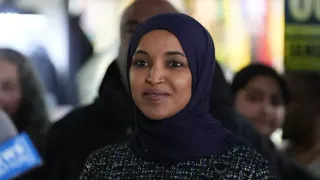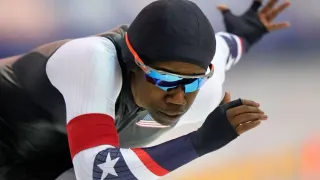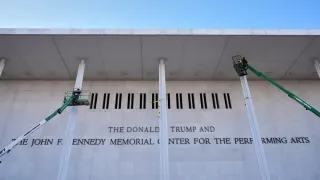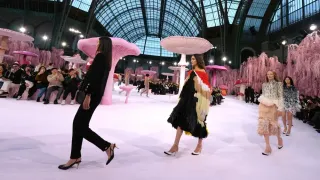March 18, 2017
Bags Packed, but Trans Judge Denied Visa by India
Seth Hemmelgarn READ TIME: 3 MIN.
Indian officials have failed to issue a visa to a transgender Alameda County Superior Court judge who had been invited to talk to people about LGBT issues. At least one bureaucrat has indicated the problem lies with that subject matter.
The trip was formally canceled Wednesday morning.
In early February, the U.S. Embassy in India invited Victoria Kolakowski, who in 2010 became the first transgender person in the country to be elected as a trial court judge, to participate in a program on LGBT law and policy as part of the agency's speaker program. She was to leave Friday, March 10 and return Sunday, March 26.
The embassy and the U.S State Department arranged a program including New Dehli and three other cities in which Kolakowski, who's married to Bay Area Reporter news editor Cynthia Laird, was to meet with judges, attorneys, law students, and the public.
"Everything was arranged," Kolakowski, 55, said in a post on her Facebook page Tuesday. "I was packed and ready to go."
However, she still needed the Indian government to issue her a business visa.
Indian officials use an outside contractor, CKGS, to handle visas, "but the decisions are made at the local consulates," Kolakowski said. "All inquires made to the consulate are directed to CKGS, no matter what or why."
She sent in her visa materials, which made it to the consulate February 20. As her departure date approached, Kolakowski and the U.S. Embassy's outside contractor communicated daily with CKGS to check on her visa status. They were assured there were no problems and her application was being processed.
Last Thursday morning, Laird went to CKGS's office, but she was told to come back in the afternoon. When she returned, she was told to come back again the next morning in order to get a manager's authorization to pick up the visa at the consulate.
"We came back Friday morning at 9 a.m., with my bags in the car, awaiting a 1:40 p.m. flight," but the couple were told the visa was still not available, Kolakowski said. She said organizers told her "they were in urgent discussions" with state department officials.
Kolakowski and Laird then went to the consulate, where Kolakowski presented her invitation letters and other documentation.
"Just before they closed at noon, a man came out to return the letters," she said. "He pointed to the letter where it said 'to participate in a program on LGBT law and policy in India.' He explained that they needed to know more about the program, so they had directed their inquiries to the Indian Embassy in DC, who forwarded the matter to the Ministry of External Affairs in New Delhi."
Kolakowski was told officials were awaiting authorization from New Dehli, but by then, "everything in India was closed until Tuesday because of the Holi holiday."
She said officials insisted to her that the State Department had already provided details of the trip to the Indian government "well in advance," meaning there shouldn't be any cause for delay, but as of Tuesday afternoon, she still didn't have her visa.
"It's in limbo waiting, trapped someplace where we don't know where it is and it may never see the light of day again," Kolakowski said. "I'm just befuddled."
The Indian Consulate did not return a message seeking comment.
In preparation for the journey, Kolakowski and others had planned her court dates carefully.
"I cannot extend or reschedule the trip, as I don't have time to reset what averages to 30-40 attorney appearances in cases each week," she said. "It took us weeks to clear out these two weeks."
Kolakowski had planned to use her own vacation time for the trip.
"I'm very disappointed, and I'm frustrated that this got caught up in a bureaucratic loop," Kolakowski said in a call with the B.A.R. Tuesday afternoon. "... I'm not even being told 'No.' I'm just being told 'Wait' until it's too late to do anything."
On Wednesday, however, Kolakowski received an email from U.S. officials saying they had pulled the plug on the trip.
"I personally met with director general of the India Council for Cultural Relations to try to get you the requested visa, but ultimately also didn't succeed," Craig L. Dicker, counselor for cultural affairs at the U.S. Embassy in New Delhi, wrote in an email. "I'm sorry to say that we have been left with no choice other than to cancel your program as currently scheduled."
Kolakowski said the embassy has sent many other people to India to discuss issues including technology and climate change, and there hadn't been any trouble with visas.
Referring to assumptions some have made that it's the Trump administration that's causing the problems, Kolakowski said, "I find it ironic that the problem we're having is not with the U.S. government that wants to send me to do this, but with the Indian government that's blocking things."
